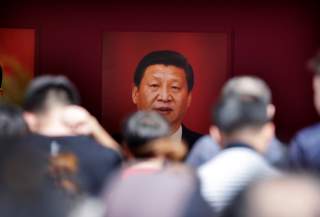Is China or Fear of China the Greater Threat?
China poses a challenge—serious, but not overwhelming. This warrants a proportional response: tough, but not panicked.
On the economic front, a number of American companies have begun planning to diversify their supply chains, shifting operations out of China. Even Apple reportedly is considering moving between 15 percent and 30 percent of production to Southeast Asia, which has become a lower-cost alternative to China. Few firms seem inclined to follow the president’s directive to divest, but future growth will be more constrained. Especially with rising salaries in China, which also have sent companies in search of more competitive labor supplies. A U.S.-China Business Council survey found that reasons for such shifts in addition to rising costs include trade tensions, anti-American political climate, limits on market access, domestic competition and better alternatives elsewhere.
Beijing poses a serious challenge to American values and interests. However, it is not an enemy. It is not unbeatable. And its future is not certain. Isolation and confrontation would be a foolish response, ensuring the PRC’s hostility, and that of the Chinese people.
The foundation of U.S. policy should remain engagement, though with more nuanced expectations. Washington must not forget that the competition between the PRC and the United States is primarily political, not military. In that fight, America should use all the advantages which flow to a free society. Washington should choose policies likely to exacerbate China’s internal contradictions and encourage pressure for liberal change.
For instance, policymakers should encourage forces that naturally constrain Chinese behavior and change Chinese objectives. Breaching the Great Firewall should be a priority. Accepting more Chinese students into American universities. Welcoming academic exchanges. Beckoning tourists. Pushing economic reform in China—and at home.
On the political/security side, the United States should step back to force allied states to cooperate and create the same kind of deterrence against Chinese aggression as Beijing is attempting to establish against American intervention. U.S. officials should work with Asian and European allies and friends to develop policies designed to constrain (rather than contain) China. That effort should include making compromises necessary to settle disputes with Russia and draw it Westward.
While no one should underestimate the challenge posed by Beijing, it also would be a mistake to overstate it. America should adjust its perspective toward China once again. That nation poses a challenge—serious, but not overwhelming. Which warrants a proportional response: tough, but not panicked.
Doug Bandow is a senior fellow at the Cato Institute. A former special assistant to President Ronald Reagan, he is the author of several books, including Foreign Follies: America’s New Global Empire.
Image: Reuters

